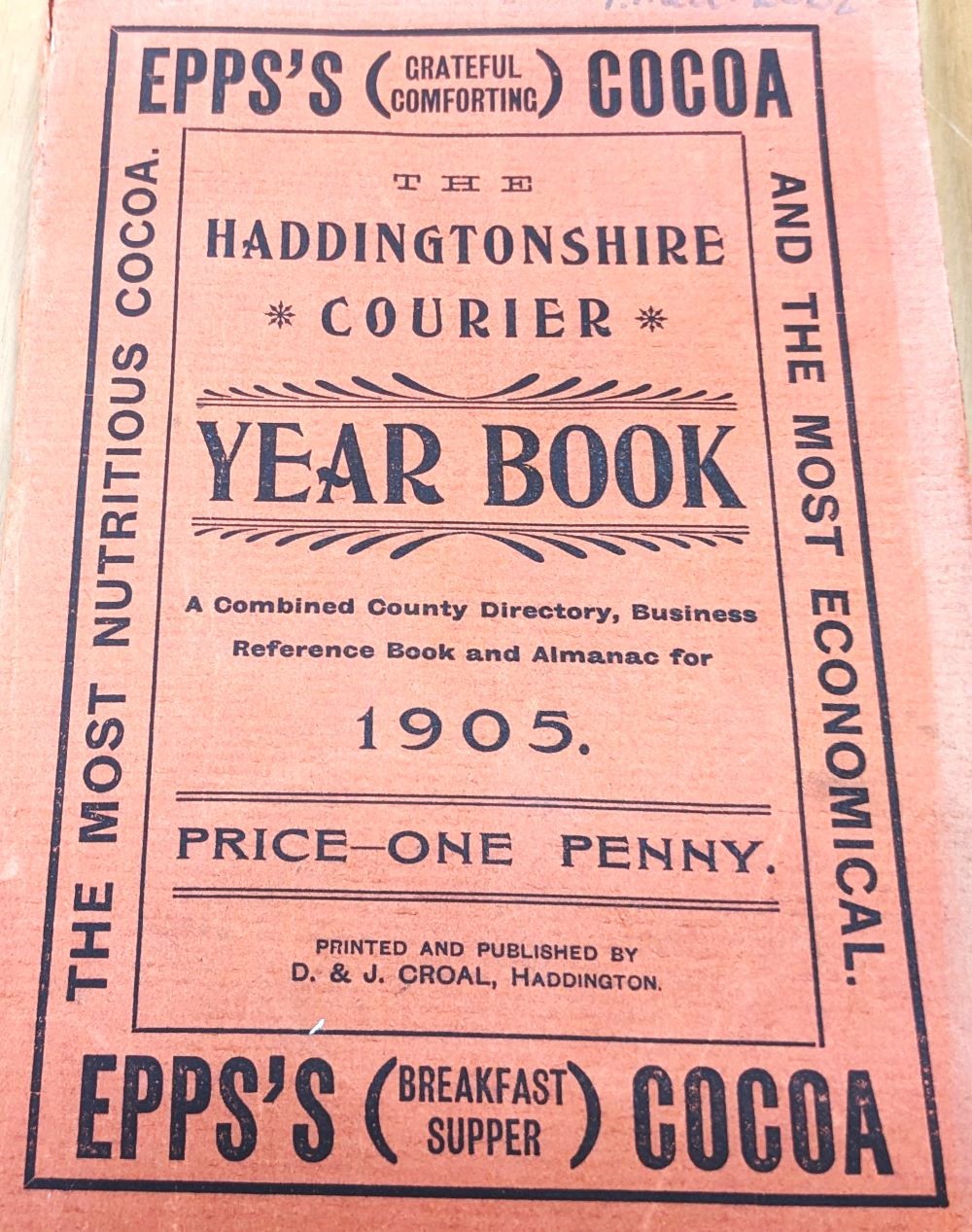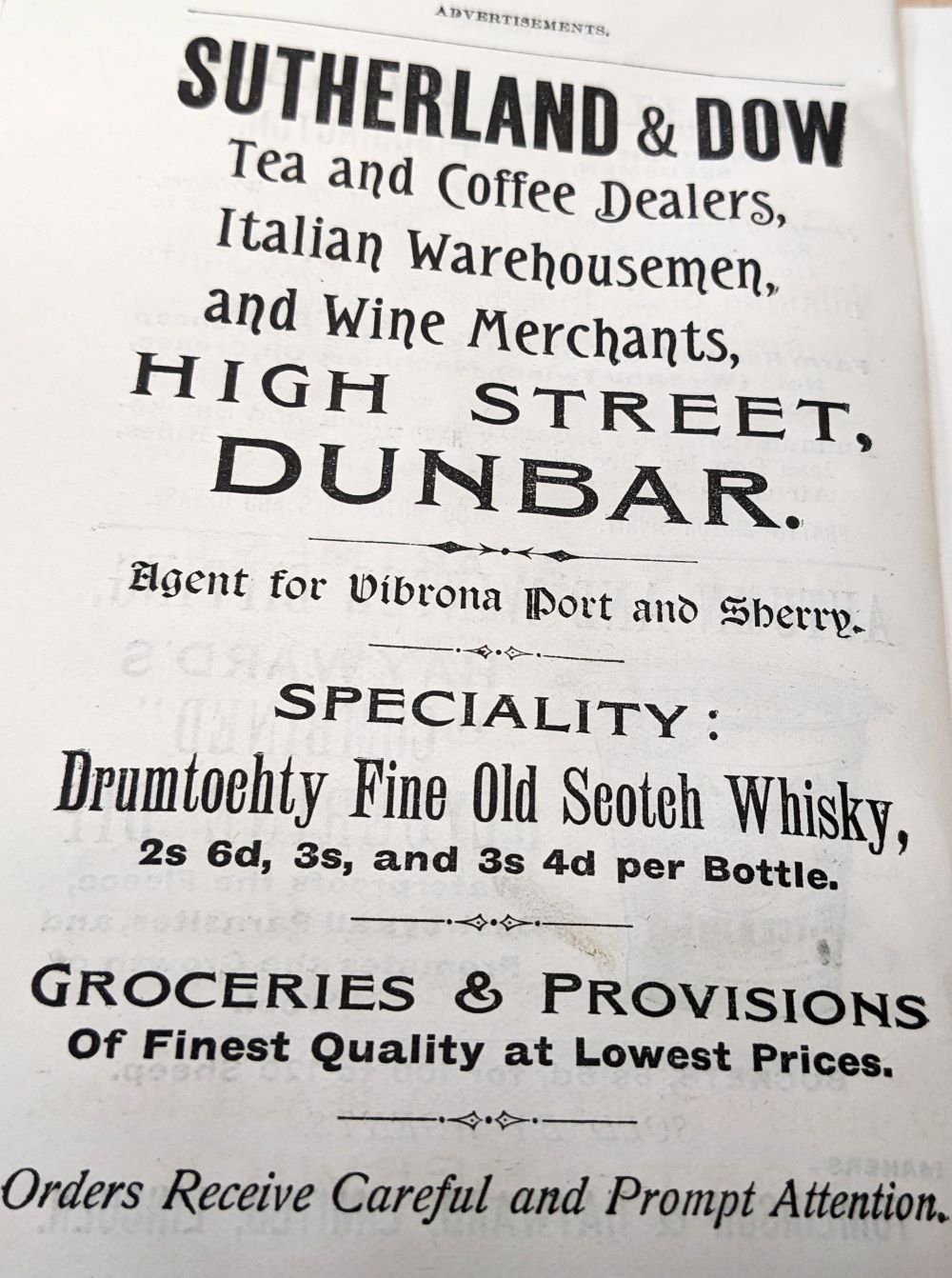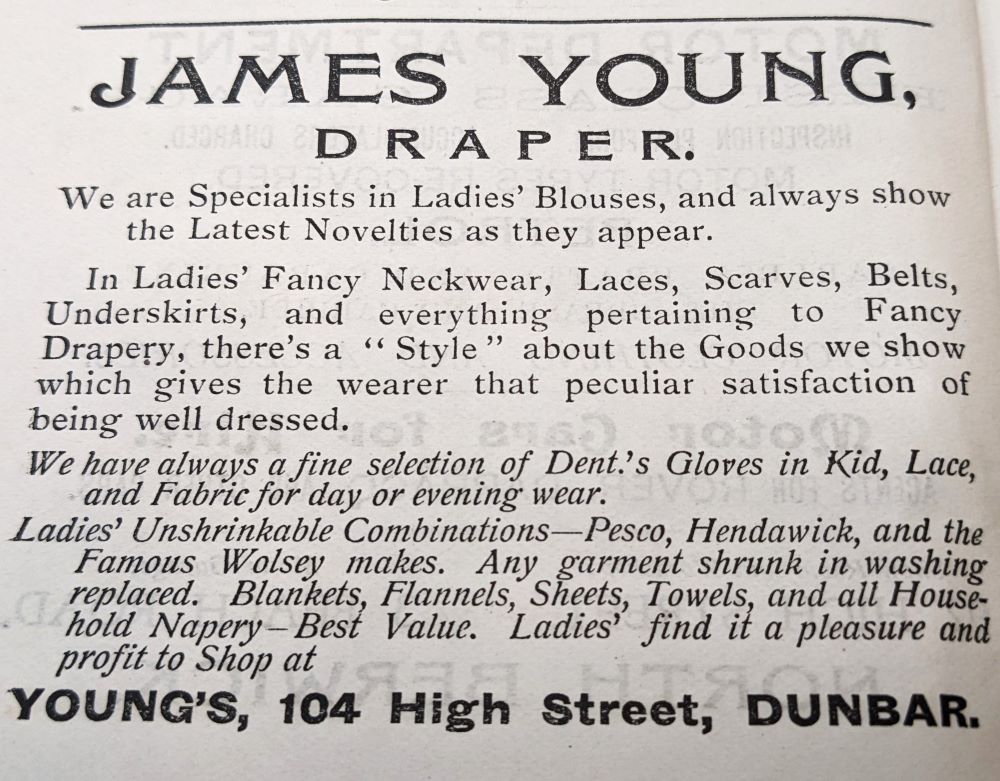June 2024
As a follow up to the post in April about the 1940 Haddingtonshire Courier Yearbook, Jim Herring investigated the 1905 issue, which is one of many held in the National Library of Scotland. The John Gray Centre also has a good run of these yearbooks. The 1905 edition appears to be the inaugural issue. Given that the 1940 edition had a limited number of adverts, due to wartime, it is not surprising that the 1905 edition has many more. In total, there are 114 adverts, with Haddington (59) and Dunbar (28) the main advertisers, followed by North Berwick (9) and East Linton (5). It might be expected that North Berwick would have had more.
The photo below shows the cover of the 1905 yearbook. The advert for Epp’s Cocoa was placed by Martin McNeill of Sidegate, Haddington and the inside cover describes McNeill’s as Family Grocer and Italian Warehouseman. The term Italian Warehouseman referred to the grocer as an importer of Italian (and other continental) goods such as pasta, olives and olive oil. These would be sold in the shop but McNeill’s would have also sold goods wholesale to other grocers. The advert on the front cover is for Epp’s Cocoa, which is described at the top as Grateful Comforting – an unusual use of the word Grateful – as well as Most Nutritious and Most Economical. This site tells us that the first commerccial cocoa was invented by Dr John Epps, who discovered a way to make raw cocoa more appetising by mixing it with 20% arrowroot and 13% sugar and this was made into a powder to be mixed with water. At first, it was used only for hospital patients who ccould not drink tea or coffee, but Dr Epps produced a cocoa for the mass market and extensive advertising made his product the most popular.

Epp’s Cocoa would have been sold in Dunbar by, amongst other grocers in the town, Sutherland and Dow – photo below – best seen enlarged. As the advert shows, the owners of this shop, like McMeill’s above, were Italian Warehousemen, as well as being Tea and Coffee dealers. The advert also shows that the shop sold Vibrona, which was a tonic wine and you can see an advert for this here. The Vibrona advert is a leaflet, with an ornate picture on one page, with less than modest claims that the tonic wine Refreshes the Strong, Restores the Weak and Revives the Depressed. The accompanying page in the leaflet refers to Vibrona as helping to cure INFUENZA, PNEUMONIA OR TYPHOID, as well as neuralgia and insomnia. There appears to be no online references to Drumochty whisky, but the likelihood is that it was produced in the Auchenblae distillery.

Another of the Dunbar adverts – photo below – is for James Young of 104 High Street, now home to the Dunbar T-Shirt Shop. The word draper derives from the Latin drappus and the French drapier, all meaning a seller of cloth, according to the Oxford Languages site. The shop sold Dents Gloves which you can still buy today. The Dents site tells us that When John Dent set up his business in 1777, little did he know how popular his luxury leather gloves would become with monarchs, movie stars and style mavens – not forgetting millions of others around the world. Young’ shop was obviously for the more affluent women in Dunbar at this time, as these gloves were – and still are – very expensive. Today, a pair of Highcliff ladies’ driving gloves will cost you £135, altough cheaper gloves are available. The shop also sold the fabulously named Ladies Unshrinkable Combinations including makes such as Pesco. You can watch a video of the making of Pesco underwear from the the National Library of Scotland here. Pesco was the brand name for Peter Scott and Co. who had a large factory in Hawick and used Pesco as its brand name for underwear, outerwear and sportswear. You can read an interesting article, with illustrations, on this here.

You must be logged in to post a comment.